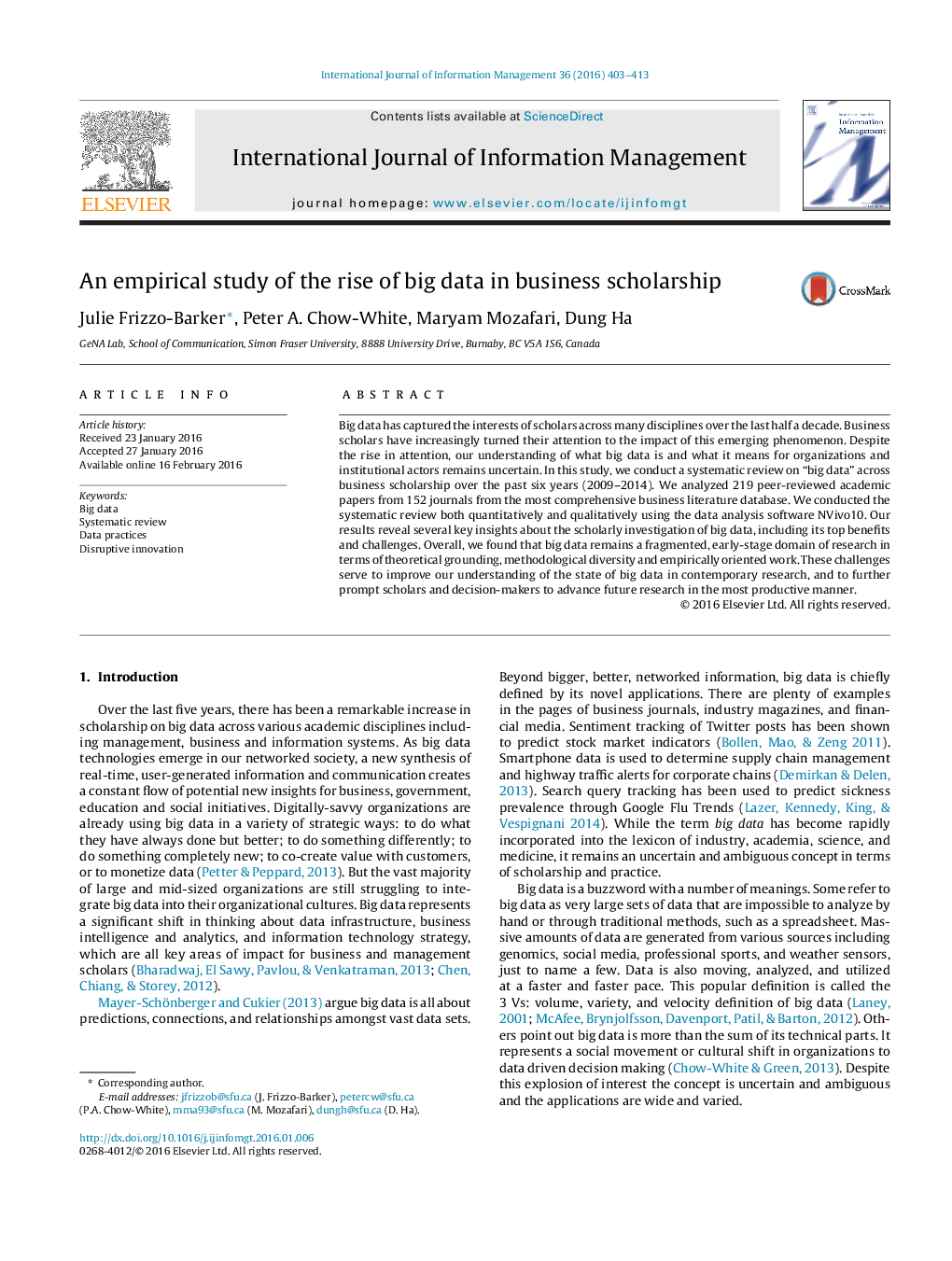| Article ID | Journal | Published Year | Pages | File Type |
|---|---|---|---|---|
| 1025514 | International Journal of Information Management | 2016 | 11 Pages |
•Big data is a fragmented emerging domain of research theoretically and empirically.•We identify 8 different concepts of big data from 41% of studies that defined it.•Focus on tools, how-to, and conceptual papers indicates early stage of development.•Top benefits included unprecedented potential to measure and manage predictively.•Top challenges are lack of skillset for big data use, and privacy concerns.
Big data has captured the interests of scholars across many disciplines over the last half a decade. Business scholars have increasingly turned their attention to the impact of this emerging phenomenon. Despite the rise in attention, our understanding of what big data is and what it means for organizations and institutional actors remains uncertain. In this study, we conduct a systematic review on “big data” across business scholarship over the past six years (2009–2014). We analyzed 219 peer-reviewed academic papers from 152 journals from the most comprehensive business literature database. We conducted the systematic review both quantitatively and qualitatively using the data analysis software NVivo10. Our results reveal several key insights about the scholarly investigation of big data, including its top benefits and challenges. Overall, we found that big data remains a fragmented, early-stage domain of research in terms of theoretical grounding, methodological diversity and empirically oriented work. These challenges serve to improve our understanding of the state of big data in contemporary research, and to further prompt scholars and decision-makers to advance future research in the most productive manner.
